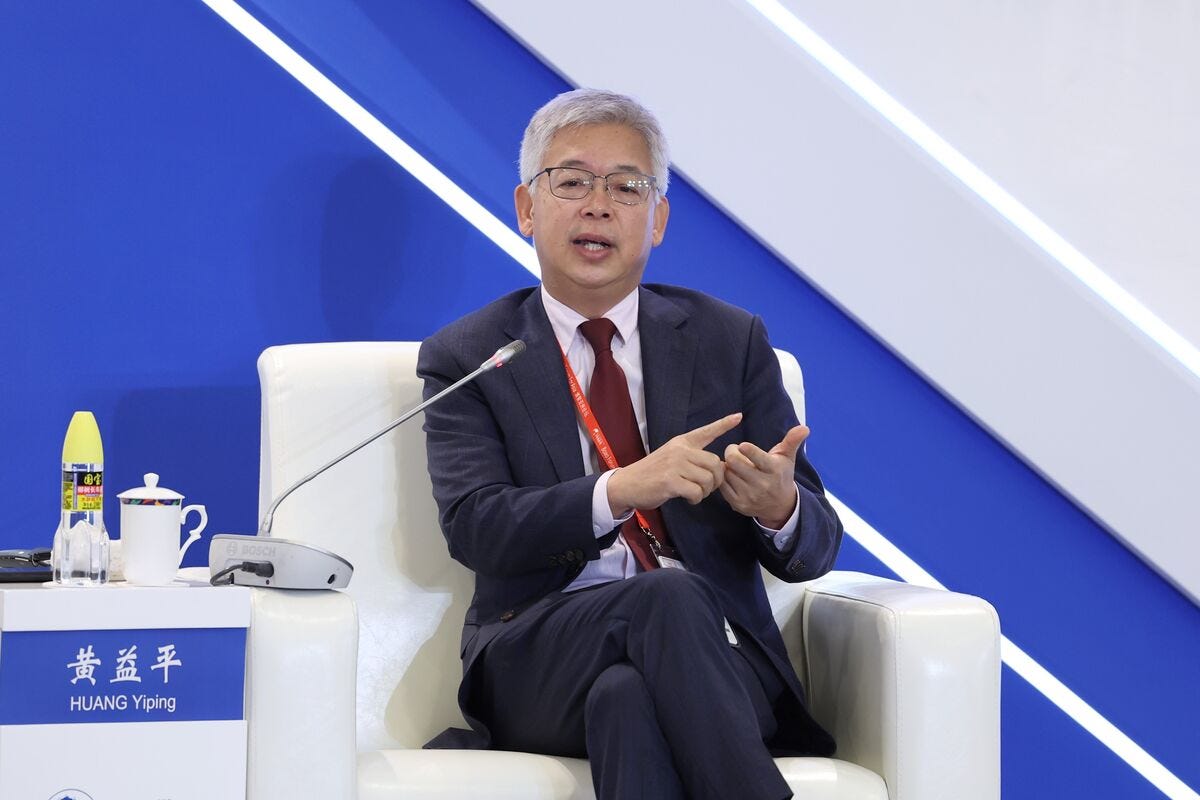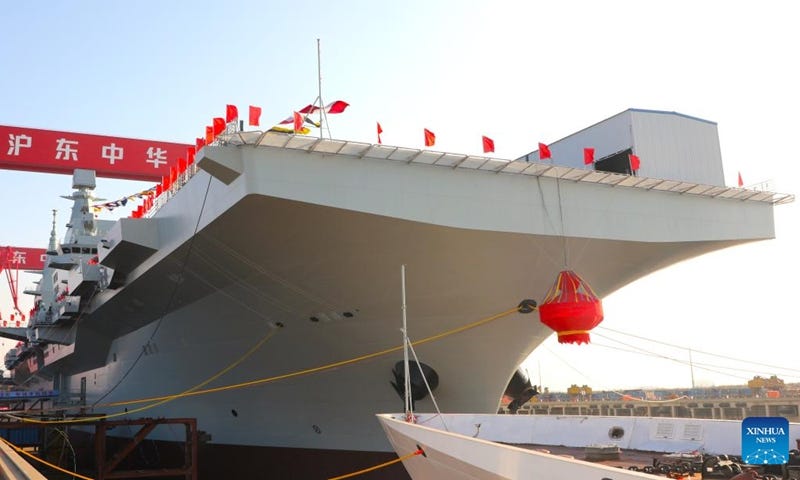China This Week: China's AI Ambition, Trump's Tariff Trouble and Putin & Xi talk on Video
This week's newsletter explores Trump’s cautious stance on imposing tariffs on China, alongside key updates on Beijing's trade policies and intellectual property debates.
China Quote 🗩
“RedNote’s unexpected global success provides an invaluable lesson to Chinese policymakers – that soft power can emerge spontaneously rather than projected through assiduously planned official campaigns.” - Maria Slow in SCMP
China’s AI Ambitions: DeepSeek Reshapes the Global AI Game
De/Cypher
Over the last four years, the United States has been trying to prevent advanced chips and technology know-how from reaching China in order to curb China's influence in the global AI landscape. However, the Chinese AI policy introduced in 2017 has created a positive environment for AI research in China. For example, Luma Labs has developed a text-to-video tool that is being referred to as a "SORA killer." Additionally, the Chinese company Kuaishou recently unveiled the Kling text-to-video model generator, which produces videos that are fairly accurate and immediately available.
China is making significant strides in the AI world, even as the United States attempts to curb China's technological ambitions through sanctions. The development of DeepSeek-V3 and its subsequent version, DeepSeek-R1, is notable not only for its technical advancements but also for how it bypasses restrictions on high-quality semiconductor exports.
DeepSeek demonstrates that breakthroughs in AI no longer rely solely on cutting-edge chips like the NVIDIA A100. Instead, it utilizes innovative architectures such as Multi-Head Latent Attention (MLA) and sparse Mixture-of-Experts (MoE). This approach allows DeepSeek to achieve efficiency while minimizing dependency on hardware. China has circumvented hardware constraints through software innovation, with the training of these models costing only $5.5 million—a fraction of the typical expenses. This undermines the U.S. strategy of technological containment.
China’s open-source approach enhances its AI ambitions. By making models like DeepSeek-R1 freely available, China has promoted global collaboration and expanded its technological influence. This strategy positions China as a potential leader in shaping international AI standards and embedding its technologies within global infrastructure, particularly in developing nations.
However, this progress raises complex questions. While U.S. sanctions have slowed Chinese access to cutting-edge chips, these restrictions have accelerated innovations in affordable AI systems. The implications are profound worldwide: affordable AI may democratize technology but could also lower the barriers for other countries, including adversarial nations, to develop competitive AI systems.
DeepSeek exemplifies China’s broader theme of self-sufficiency and innovation, as reflected in President Xi Jinping's call for technological sovereignty. As AI drives advancements in manufacturing, robotics, and biotechnology, China is not merely keeping pace but is actively redefining existing power structures. Given the country's rapid progress, there is a pressing need to reassess policies on trade barriers in light of fast-evolving technologies.
The U.S. sanctions on AI and AI-related export controls were not meant to suppress innovation in the short term; rather, they aim to hinder development in Chinese laboratories over the long term. Nevertheless, these measures have caused some friction, and despite the broader ambitions of the Chinese state regarding AI, pockets of discontent are emerging. Beyond the major tech companies in China, AI research is encountering challenges and a loss of momentum.
The deep connections between China's tech industry and its university system, which has built a strong foundational, technical, and infrastructural base, will require significant effort to slow down. It is crucial for the world to have fair and open conversations about general artificial intelligence, as viewing this as a zero-sum game could ultimately undermine global progress and ambitions, rather than ensuring a competitive edge for both parties.
The Brief 📝
Beijing scouts for cyber talent at hackathons
IO reports that Chinese Communist Party and its Ministry of State Security want to hire more cyber experts able to detect potential social unrest hotspots online. Hackathons are proving to be useful places to find the talent needed for such a delicate task.
Public Concerns Rise Over Quality of Chinese Generic Drugs
Bloomberg reports that public outrage has reignited over China's generic drugs, replacing Western brands in hospitals. A senior surgeon, Zheng Minhua of Ruijin Hospital, criticised the quality, citing ineffective hypertension meds and anaesthetics. Despite government savings and reassurances, complaints persist. “What’s the point of paying for state medical insurance when the medicines no longer work?” one person questioned on Weibo. Another hinted at privilege disparities: “How do senior cadres get their medicine then?” Given China’s history of problems with food and drug safety, the latest bout of public discontent is understandable.
Trump Says He Would ‘Rather Not’ Have to Impose Tariffs on China
Bloomberg reports that Donald Trump has expressed a preference to avoid imposing additional tariffs on China but stressed the need for fair trade practices. He noted that while he hopes to build a better relationship with Beijing, any such move depends on China's economic conduct, particularly regarding its trade policies and intellectual property issues.
China Will Approach Post-Assad Syria With Caution

Giorgio Cafiero writes in World Politics Review that China faces challenges in post-Assad Syria despite supporting Assad diplomatically during the civil war. Concerns over Uyghur militants and TIP fighters in Syria complicate Beijing's position. Pragmatic engagement with HTS-led Damascus could involve leveraging its UN veto power and potential investments. China may exploit Western missteps, maintaining a long-term perspective centred on the Belt and Road Initiative.
Chinese Sweat and Blood – Not Soldiers – Have Left Their Mark on Panama Canal
SCMP reports on the vital contributions of Chinese labourers to the Panama Railway and Canal. Facing exploitation and harsh conditions, thousands of Chinese workers, particularly in the 19th and early 20th centuries, played key roles in constructing these transformative projects. Their sacrifices and legacy endure, forming the largest Chinese community in Central America and strengthening modern China-Panama relations amidst geopolitical rhetoric.
Open Questions | Economist Huang Yiping on Trade War Redux Under Trump and China’s Stimulus ‘U-Turn’
Frank Chen writes in SCMP that economist Huang Yiping stresses China's need for fiscal stimulus to combat economic stagnation and prepare for Trump’s tariff policies. Huang advocates a "Global South Green Development Programme," likened to a Marshall Plan, to address overcapacity and foster global partnerships. He highlights challenges in reforming China's monetary policy, local government debt, and the internationalisation of the yuan.
Trump’s Greenland Bid Is Really About Control of the Arctic and the Coming Battle with China
Stefan Wolff writes in The Conversation that Donald Trump’s renewed interest in acquiring Greenland underscores the island’s strategic value in critical mineral resources and Arctic security. While Greenland’s independence movement raises concerns about Chinese influence, Trump’s unilateral approach risks alienating NATO allies like Denmark. Wolff argues that collaboration, not territorial expansionism, is key to countering Russian and Chinese ambitions in the Arctic.
News 🗞️
Putin and Xi Stick Together in Video Call After Trump’s Inauguration
Matthew Luxmoore writes in WSJ that Russian President Vladimir Putin and Chinese leader Xi Jinping pledged to deepen ties amidst growing U.S. pressure. In a 90-minute video call, they discussed strategic coordination, the Ukraine war, and Taiwan. Their partnership underscores a shared goal to challenge U.S. influence, with China aiding Russia's economy through trade and lessons in circumventing Western sanctions.
2025 Chang'an Lantern Festival Opens in Xi'an
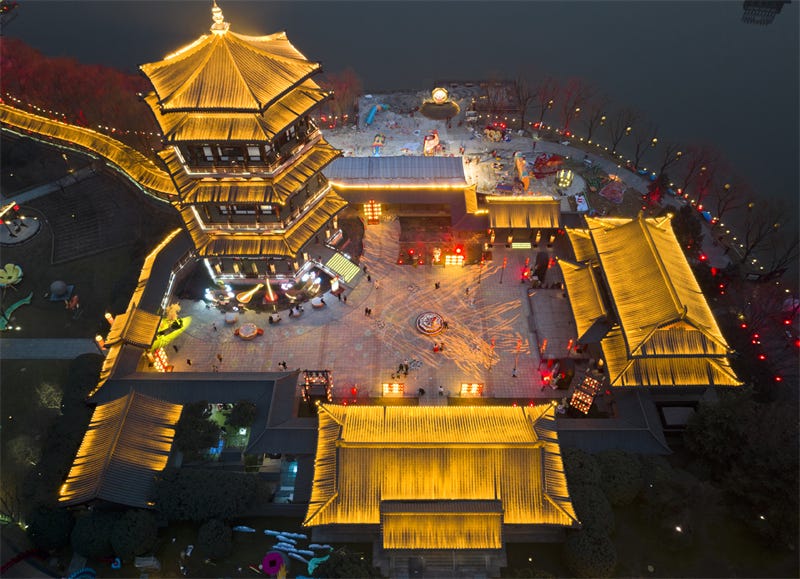
Xinhua reports that 2025 Chang'an Lantern Festival has opened in Xi'an, Shaanxi Province, marking the upcoming Chinese Lunar New Year. Running until 16 March, the festival features stunning light installations at iconic landmarks, including the Xi'an City Wall, Tang Paradise, and Daming Palace National Heritage Park, offering visitors a blend of tradition and modern interactive experiences.
Xi Speaks with Putin, Calling on China, Russia to Uphold Int'l Fairness, Justice
Xinhua reports that Chinese President Xi Jinping and Russian President Vladimir Putin held a video meeting to discuss enhancing bilateral ties and promoting global fairness. Xi emphasised stability in China-Russia relations amidst global uncertainties, mutual support on multilateral platforms, and commemorating the 80th anniversary of WWII victories. Putin reaffirmed support for China's Taiwan policy and deeper cooperation in trade and multilateral affairs.
China to Allow Foreign Institutions to Offer New Financial Services in Free Trade Zones
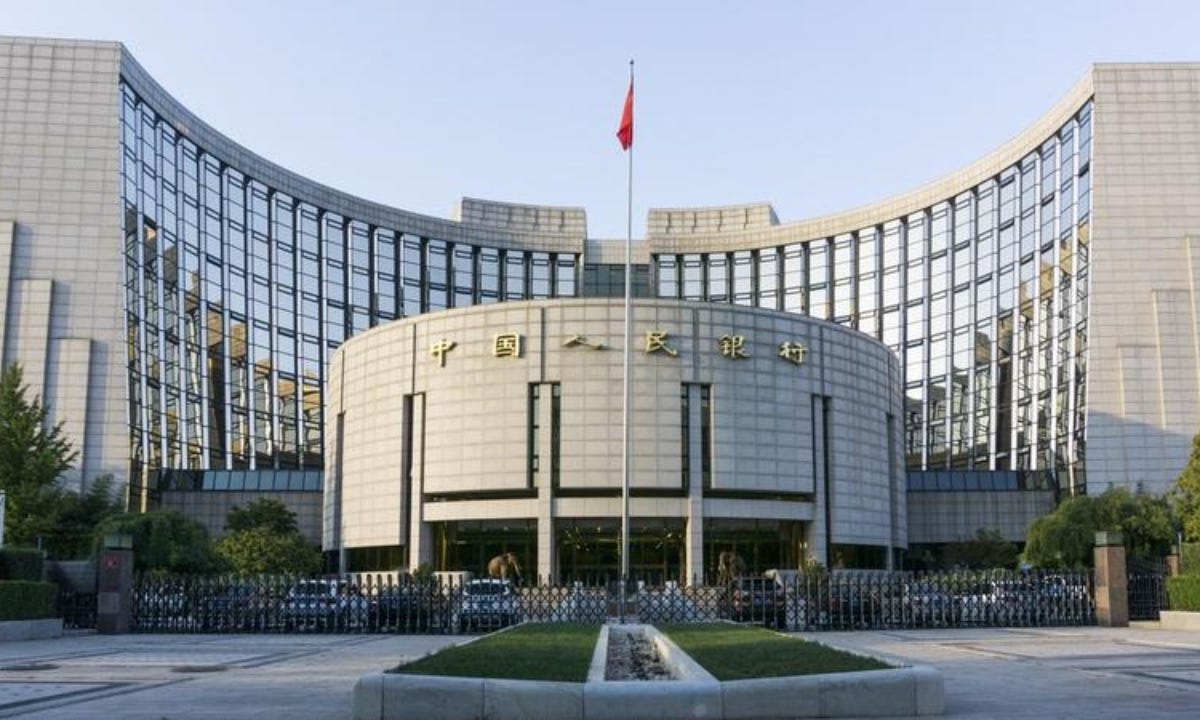
Reuters reports that China will permit foreign financial institutions to offer new types of financial services in select free trade zones, treating them on par with domestic firms. The central bank announced streamlined fund transfers for foreign investments in regions like Beijing and Shanghai, according to guidelines published by five government agencies.
Chinese army-linked Beihang University weaves its web in France
IO reports that Beihang University, which specialises in aeronautics and works closely with the Chinese defence industry, is increasingly targeting French academia. Intelligence Online reveals its latest incursions into France - moves the DGSI is monitoring closely.
Sri Lanka Agrees with China's Sinopec to Fast-Track $3.7 Billion Refinery
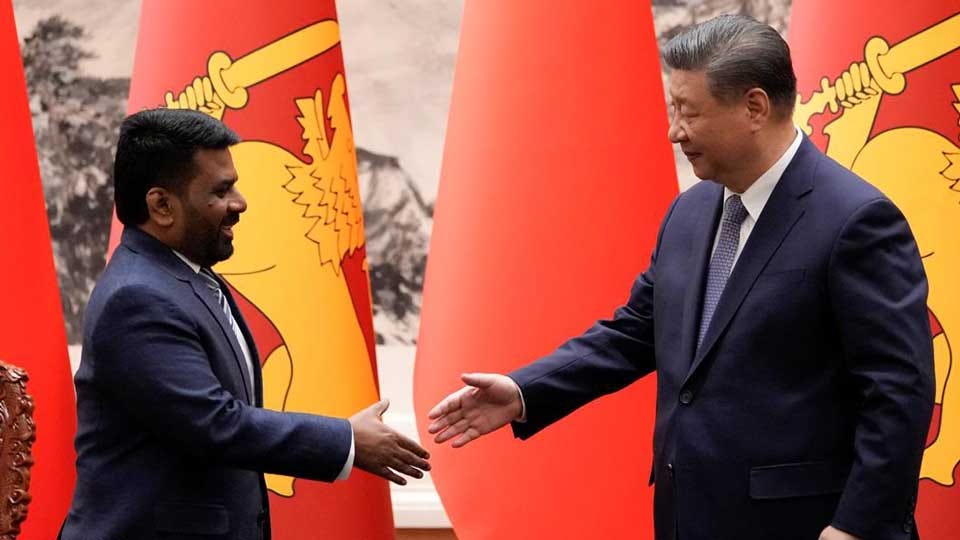
Reuters reports that Sri Lanka has signed an agreement with China's Sinopec to expedite a $3.7 billion oil refinery project in Hambantota. Foreign Minister Vijitha Herath highlighted the project's importance for Sri Lanka, which relies on costly oil imports. The refinery aims to bolster the Chinese-built Hambantota Port as a hub. Discussions with India on energy collaborations continue.
TikTok Owner ByteDance, DeepSeek Lead Chinese Push in AI Reasoning
Liam Mo and Brenda Goh write in Reuters that ByteDance has unveiled Doubao-1.5-pro, an AI model challenging OpenAI’s products by outperforming its o1 model on reasoning benchmarks. DeepSeek also launched DeepSeek-R1, an open-source model offering competitive performance at lower costs. ByteDance and DeepSeek's pricing strategies aim to rival OpenAI, sparking a growing race in AI development among Chinese firms like Moonshot AI and iFlyTek.
China Confirms Type 076 Amphibious Assault Ship as Drone Carrier
SCMP reports that China's PLA Navy has officially acknowledged its Type 076 amphibious assault ship, "Sichuan," as a drone carrier. Naval Commander Chi Jianjun emphasised the growing role of uncrewed systems in modern warfare, including robotic assets for amphibious missions. Equipped with electromagnetic catapults and advanced drones like the GJ-11, the Type 076 enhances China's combat capabilities amidst rising geopolitical tensions over Taiwan.
Chinese Scientist Named as Chairwoman of International Nuclear Standards Committee
SCMP reports that Xiao Chen has been appointed chairwoman of the International Electrotechnical Commission’s nuclear instrumentation committee, marking the first Asian to hold the role. With over 20 years of nuclear safety expertise, Xiao aims to enhance standards efficiency. This appointment highlights China's growing global recognition in nuclear instrumentation and standardisation, underscored by her contributions to major international projects like the ITER nuclear fusion experiment.
China’s Population Shrinks Again
Caixin reports that number of people in China declined for the third straight year in 2024. The National Bureau of Statistics announced Friday that the country’s population shrank by just shy of 1% to 1.408 billion. The figure shows that the country is not just getting old, but aging at a faster pace.
De/Cypher Data Dive📊
Chinese scientists working to create a fusion reactor for unlimited, low-cost energy have sustained plasma at over 100 million degrees Celsius for a record-breaking 1,066 seconds. This marks a major step toward realizing clean, limitless energy.
Fusion energy stands out from traditional sources as it relies on abundant raw materials and emits no greenhouse gases, positioning it as one of the most promising solutions to the world’s energy challenges.
Image of the Week📸

- - -


